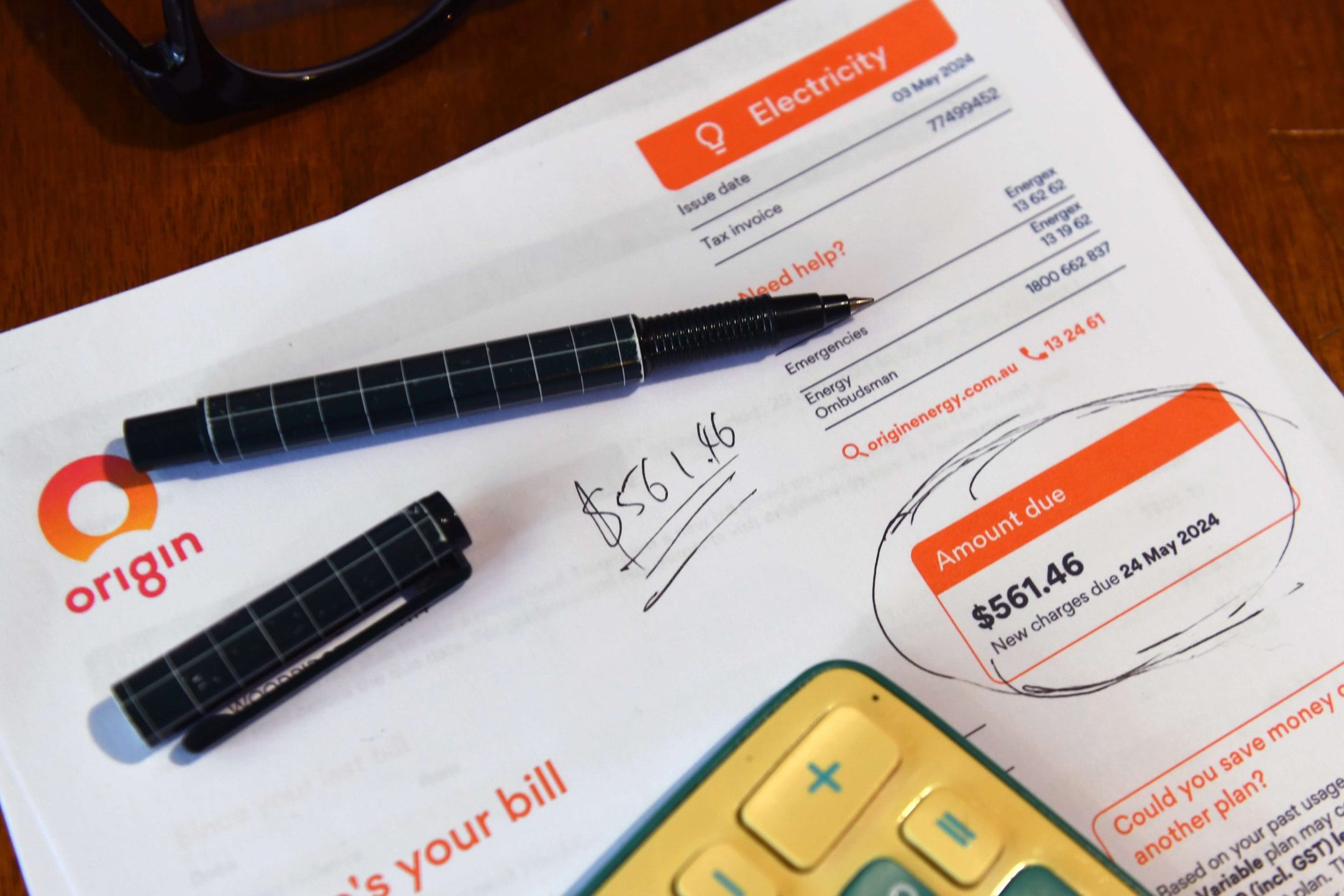
By Poppy Johnston in Canberra
Retail energy customers are broadly paying less in 2024 than the previous 12 months but the consumer watchdog warns a failure to switch plans regularly is leaving many paying for their loyalty.
Customers in NSW, Victoria, SA and southeast Queensland on older offers are typically paying hundreds of dollars extra a year than those taking advantage of introductory deals.
The Australian Competition and Consumer Commission latest report on the National Electricity Market found customers on flat rate market offers that are two or more years old experience average annual prices 16.9 per cent higher, or $317, than those on newer offers.
The ACCC observes the so-called “loyalty penalty” intensified the longer customers waited to switch.
“While some level of benefit for being on a newer offer is necessary to incentivise consumers to switch offers, it appears some customers are incurring potentially disproportionate penalties for not regularly engaging,” the report says.
While efforts have been made to encourage customers to shop around – including providing them with “best offer” checks – more than a third are still languishing on offers two years or older.
The ACCC cites confusion around “best offer” or “better offer” messaging to customers as a possible barrier to switching, with some retailers found to be using the same labels for both new offers and old ones.
Yet an uptick in shopping between August 2023 and August 2024 – driven by cost-of-living pressures and other factors – appears to have helped lower calculated annual prices across the energy market, the ACCC says.
Retailers are also heavily influenced by the annual change in the default offer price changes by regulators, which were lower than the financial year prior in most energy markets.
On average, the ACCC found residential customers on flat rate offers had experienced a four per cent reduction in energy prices.
Variations were recorded across other types of energy plans and different regions.
The average decline was still not enough to fully unwind the price growth from 2022 to 2023.
“This means that prices in 2024 are still higher than prices before the energy market volatility events in mid-2022,” the report says.
The ACCC’s assessment of calculated annual prices does not account for government energy rebates, which the consumer watchdog says would have led to reductions in the actual electricity bills received by many customers.
Treasurer Jim Chalmers said energy prices were coming down for a range of reasons.
“Our reforms are helping, more people are shopping around for a better deal, there’s stronger competition between the retailers and better conditions in international energy markets,” he said.
Who can be trusted?
In a world of spin and confusion, there’s never been a more important time to support independent journalism in Canberra.
If you trust our work online and want to enforce the power of independent voices, I invite you to make a small contribution.
Every dollar of support is invested back into our journalism to help keep citynews.com.au strong and free.
Thank you,
Ian Meikle, editor




![Canberra’s woodchopping association – the Hall and District Axemen’s Club – is rebranding to Capital Country Woodchopping.
“We didn’t want to be exclusively a Canberra association and we deliberately left any gender-specific wording out in the new name,” says president Cheyanne Girvan, 32.
“We also went a different [way] to other associations under NSW by not including ‘association’ in our name.”
Four years ago the Hall and District Axemen’s club’s membership was 25.
Cheyanne says this name change will give the club the versatility to grow into other areas and on to greater things.
To read on about Cheyanne's story with the woodchoppers, visit our website at citynews.com.au or click the link in our bio!
@@capitalcountrywoodchopping
#woodchopping #woodchoppinggirl #woodchoppingaustralia #axemen #axewomen #woodcutter #canberrastories #storiesthatmatter #citynews #journalism](https://citynews.com.au/wp-content/plugins/instagram-feed/img/placeholder.png)
Leave a Reply